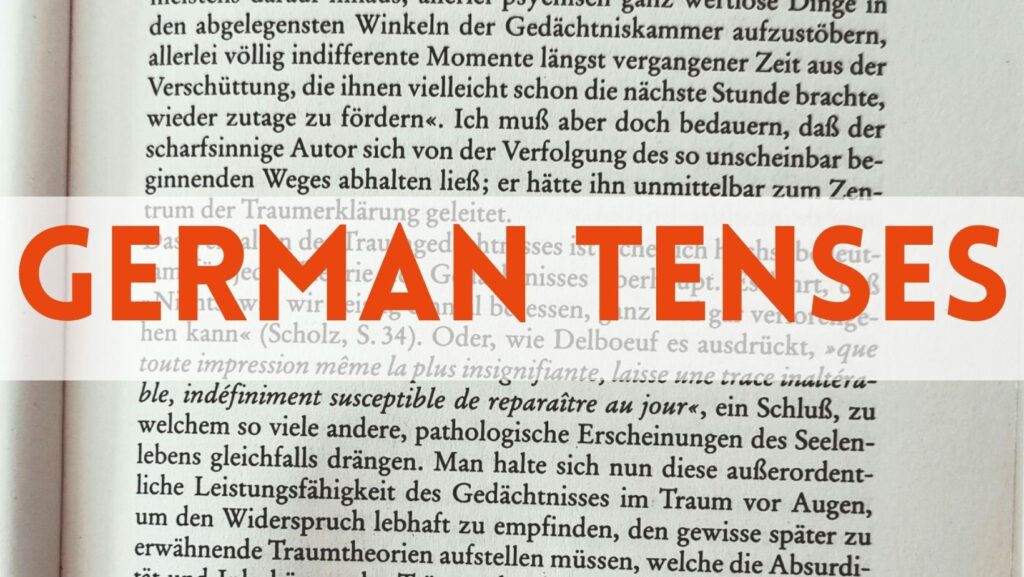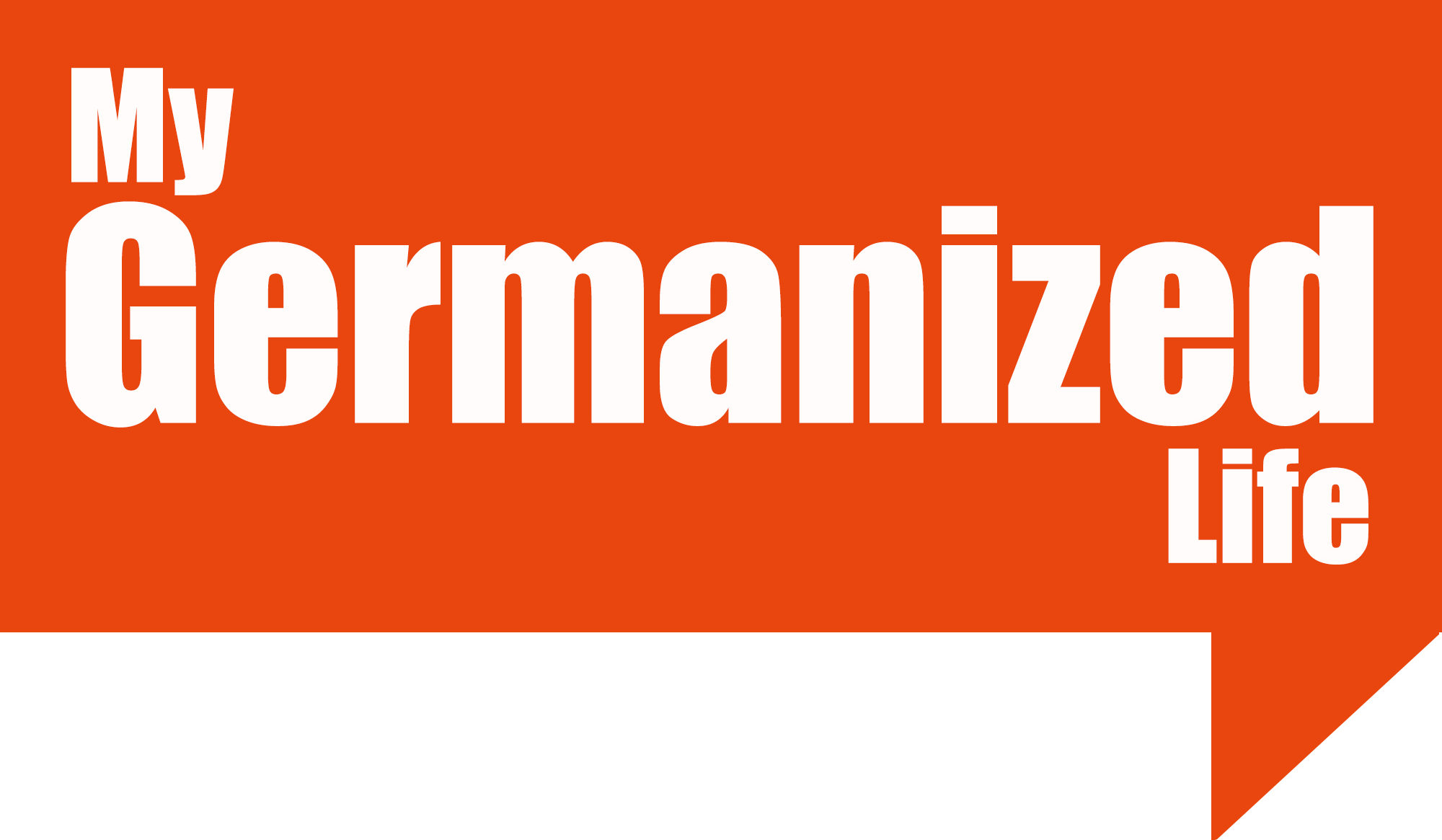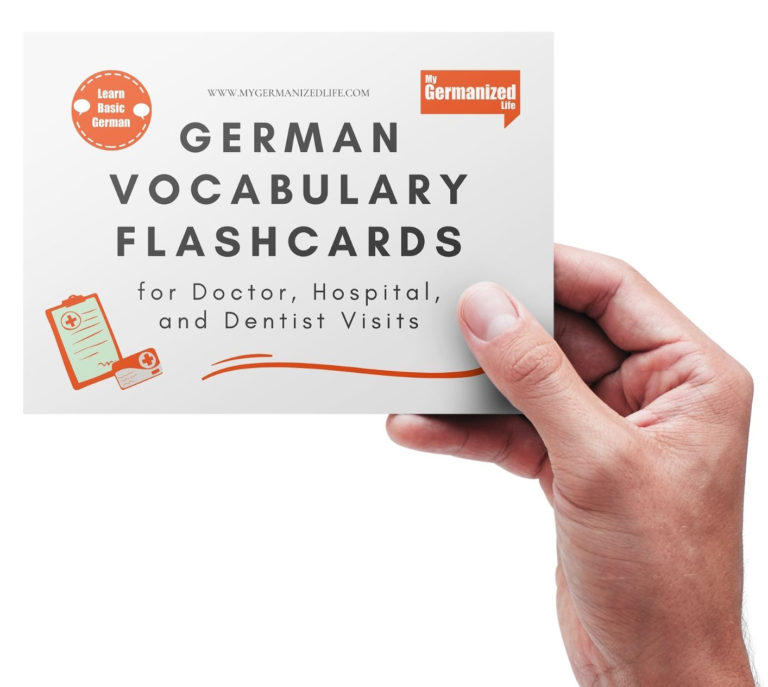
The German tenses may seem like one of the hardest aspects of learning the language. But did you know that German only has six tenses while English has 12? With a clear overview of how the German tenses work and what the rules are, you’ll find them easier to learn than you thought.
The six German tenses are:
- Present tense (Präsens)
- Present perfect (Perfekt)
- Simple Past (Präteritum)
- Past Perfect (Plusquamperfekt)
- Future I (Futur I)
- Future II (Futur II)
Below is a complete overview of the six German tenses, when to use them, and how to form them. They’re divided into three categories, the present, past, and future. Follow the links under each description for a detailed explanation of each tense. You can use these rules as a reference and return to them any time you need a little help forming German sentences.
1. Present Tense (Präsens) in German
In English, we use two forms of the present tense. The regular present tense describes actions we do regularly like “I eat lunch every day.” The present continuous describes actions that take place here and now, for example, “I’m washing my laundry today.” In German, there’s only one present tense!
Usage: Actions happening now, habitual actions, and general truths
Formation: Conjugate regular German verbs in the present tense by adding the appropriate endings to the verb stem, according to the subject. Add an extra “-e” before verb stems ending in (-st, -t) for the du, er/sie/es, and ihr forms.
| Pronoun | Ending | Example |
| Ich (I) | -e | Ich lerne |
| Du (You) | -st | Du lernst |
| Er/Sie/Es (He/She/It) | -t | Er lernt |
| Wir (We) | -en | Wir lernen |
| Ihr (You all) | -t | Ihr lernt |
| Sie (They/You formal) | -en | Sie lernen |
Examples
- Ich spiele Fußball. (I play soccer.)
- Sie arbeitet in einem Büro. (She works in an office.)
- Wir lesen ein Buch. (We are reading a book.)

The Past German Tenses (die Vergangenheit)
The German tenses that describe the past include the present perfect, simple past, and past perfect tenses.
- Present Perfect (Perfekt) tense is for past actions with present relevance and is common in spoken language. You form it with an auxiliary verb (haben/sein) and a past participle verb (e.g., Ich habe gespielt – I played).
- The Simple Past (Präteritum) is more common in written German and involves adding endings to the verb stem or changing it entirely (e.g., Ich spielte – I played).
- The Past Perfect (Plusquamperfekt) describes actions completed before another past action, using the past auxiliary verb (hatte/war) and a past participle (e.g., Ich hatte gespielt – I had played).
Next, let’s look at each of these German tenses in more detail.
2. Present Perfect (Perfekt) in German
Although the structure of the German present perfect looks similar to English grammar, the usage is different. For example, “ich habe gespielt,” does not mean “I have played,” but rather “I played.”
Usage: Actions completed in the past, common in spoken German.
Formation: Auxiliary verb (haben/sein) + past participle. The rules are different for Regular German Verbs than for Irregular German Verbs. Always use a form of “sein” when movement verbs are involved. Use a form of “haben” where no movement is taking place.
| Use a form of “haben” | Use a form of “sein” |
| spielen (to play) “ich habe gespielt“ | gehen (to go) “Ich bin gegangen“ |
| denken (to think) „ich habe gedacht“ | fahren (to travel) “Ich bin gefahren“ |
| kochen (to cook) „ich habe gekocht“ | laufen (to walk) „ich bin gelaufen“ |
| Lernen (to learn) „ich habe gelernt“ | bleiben (to stay) „ich bin geblieben“ |
Examples
- Ich habe gespielt (I played)
- Du bist gewesen (You were)
- Sie ist gegangen (She went)
3. Simple Past (Präteritum)
The German simple past is common in written German. Regular and irregular German verbs have different formation rules in the simple past.
Usage: Actions completed in the past, commonly used in written German.
Formation: For regular verbs, add the ending -te to the verb stem. Irregular verbs change their verb stems.
Examples:
- Ich spielte Tenis (I played tennis)
- Er studierte Chemie (He studied chemistry)
- Wir gingen nach Hause. (We went home.)
4. Past Perfect (Plusquamperfekt)
The German past perfect tense helps convey the timeline of past events. This tense is more advanced and it’s advisable to start learning this tense after you’ve learned the other two past tenses.
Usage: Actions that occur before another action in the past.
Formation: Auxiliary verb in simple past (hatte/war) + past participle.
Examples
- Ich hatte gespielt (I had played)
- Sie war gegangen (She had gone)
- Wir waren eingeladen (We had been invited)
The Future German Tenses (die Zukunft)
German has two future tenses. The Future I (Futur I) is for actions that will happen in the future. (e.g., Ich werde spielen – I will play). The Future II (Futur II) expresses actions that will have been completed by a certain future time. Form it with “werden,” the past participle of the main verb, and the auxiliary verb in the infinitive (e.g., Ich werde gespielt haben – I will have played).
5. Future I (Futur I)
German Future I is the simplest future tense in German. You can explain what your plans are for the future
Usage: Actions that will happen in the future.
Formation: Use the auxiliary verb (werden) + infinitive of the other verb. “Werden” is an irregular verb. Here’s how to conjugate it.
| Subject | werden (will) |
| Ich | werde |
| Du | wirst |
| Er/sie/es | wird |
| Ihr | werdet |
| Sie/sie | werden |
| Wir | werden |
Examples
- Ich werde spielen (I will play)
- Du wirst tanzen (You will dance)
- Wir werden lernen (We will learn)
6. Future II (Futur II)
Use the German future II for actions that have a specific completion date. An English language example would be, “I will have learned.”
Usage: Actions that will have been completed by a certain point in the future.
Formation: Auxiliary verb (werden) + past participle + auxiliary verb in infinitive (haben/sein).
Examples
- Ich werde gespielt haben (I will have played)
- Du wirst getanzt haben (You will have danced)
- Sie wird gegangen sein (She will have gone)

4 Tips for Learning the German Tenses
Mastering the German tenses requires consistent practice and exposure to the language in various forms. Here are some helpful tips for learning the German tenses.
- Read – Engage with German books, articles, and online content, to see how different tenses are used in context. Pay attention to the verb forms and their functions in sentences.
- Write – Regularly write essays, journal entries, or short stories in German. Challenge yourself to use different tenses to describe time frames and hypothetical scenarios.
- Speak – Join language exchange groups or download German learning Apps where you can converse in German and get feedback on your use of tenses.
- Watch – Find German movies, German TV shows, and videos to practice your language skills.
- Listen – Turn on your favorite German podcasts to sharpen your listening skills. You can familiarize yourself with the sound and usage of different tenses in natural speech.
- Practice – Try to incorporate the tenses into your daily conversations or writing exercises. Regular practice will reinforce your understanding and ability to use tenses correctly.
Understanding and using German tenses correctly is crucial for mastering the language. By focusing on regular practice and exposure, learners can gain proficiency and confidence in their communication skills.





